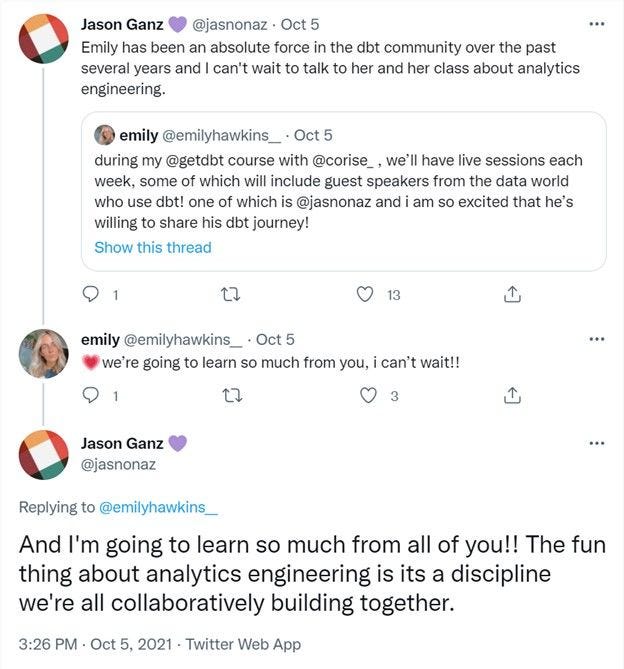Open Book Analytics
The data field is changing. People in the industry feel it. It’s an exciting time, but difficult to explain exactly why. Several people have shared their takes, but no one seems to fully capture what our profession is experiencing today.
Is this momentum coming from another rebranding of data - destined to fall out of favor in a few years?
Perhaps it is the formation of an intergalactic data stack - finally settling into distinguishable bodies that enable us to do great work.
Maybe the purple-people have bridged the gap between 'data' and 'non-data' people.
There is truth in all these articles, but not the whole truth. Individually they give us a unique perspective into the current state of analytics. Woven together, you can start to see the larger narrative. That narrative is like one big book. A book that is still being written. A book that is open for your contribution.
This idea clicked with me when I observed a thread between Emily Hawkins and Jason Ganz on Twitter. Emily is running a dbt bootcamp and Jason will be a special guest during the course. During their exchange of mutual respect and appreciation, Jason hit on a deeper truth.
No company owns the definition for an Analytics Engineer. There is no certification handed down from a board of experts before a data professional can start practicing their craft. Yet, a vibrant community has formed around analytic work, welcoming your ideas, and weaving them into the larger narrative.
Not Boring’s Packy McCormick identified this trend of bottoms-up narrative building in his piece - Story Time. Each individual story may stand on its own, but when you bring them together they form a narrative with direction, size, and tone. Once that narrative forms it compounds with the Lindy Effect - the longer it lasts, the longer it’s expected to last.
To unlock this compounding effect Packy highlights some keys to success. I have not found another data-centric community that has embraced these keys as well as the dbt community. It’s worth a quick case study.
Make it clear what you’re about so that others can use that in their own storytelling
The vision was set for a mature analytics workflow in 2016, with only minor adjustments to the viewpoint later on.Get people genuinely involved in what you’re doing and incentivize them to tell their own stories about it
Officially, you could look at dbt Labs partnership program or foundry program that expand the community of skilled practitioners. Unofficially, you may share your testimonial as a thank you for how much dbt Core has helps without expecting anything in return.Work with credible partners to tell your story in new ways to the right people
Do any of these names ring a bell?
mbrace authenticity instead of trying to be overly polished (unless you’re Apple)
Please see the memes channel in dbt Slack - it’s not professionally polished, but it is authenticGive stakeholders places, like Discord servers, to coordinate
Did I mention the Slack channel?Amplify their stories when they feed into the main narrative
The Analytics Engineering Roundup is literally an amplification of interesting work in our industry - or it could be as simple as a retweet. Either way, try this one for yourself - and remember to pay it forwardStay open to the million ways that the narrative could evolve
People keep joining in on the conversation and there is plenty of room left to share your story
This shift in analytics is larger than any individual company though. It is an open book, waiting for you to write the next chapter, paragraph, or query.
I encourage you to share your stories.
Whether you share a celebration from your work, patiently answer a newcomer’s question, or publish a thought piece you’re worried you have no earthly qualification to write - I encourage you to share your stories!
Each bit of work put out into the community helps shape what we are all collaboratively building together. Let’s keep it rolling.






